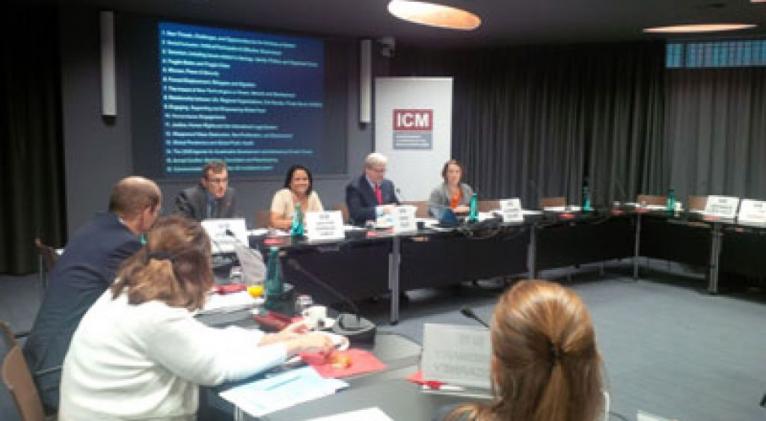Cuba Shows Aspects of its Public Health Model
especiales

Cuba here exhibited the characteristics of its model of public health, based in primary care, integrated and sustainable, which is today an example of universal coverage within reach of the entire population. Anayansi Rodríguez, Permanent Representative of the island to the United Nations Office in Geneva, talked about the experience of his country in building a resilient sector model, by intervening in the retreat on global health and global pandemics.
Rodriguez tried the various elements which led to the development of a system that assumed as basic principles of all persons access to the benefits of scientific and technological development and international solidarity.
The training, preparation and improvement of human capital is a key element in the strengthening of health systems, he stressed at the time that he emphasized the need to achieve the political commitment of Governments to place the community as object and beneficiaries of the programmes and services.
Similarly, he emphasized the urgent need to address the root causes that severely affect the response capacity of the health systems in many countries of the third world, particularly the underdevelopment, the lack of adequate infrastructure and deficits in education, among others.
The diplomat also referred to the Cuban experience in the battle against the epidemic of Ebola in West Africa.
That crisis marked a paradigm shift in the approach of the World Health Organization to the response to health emergencies, he said.
He also stressed the importance of inclusive, multidisciplinary and preventive approach to successfully respond to infectious outbreaks such as this or other emergencies with health consequences.
The Forum, organized by the independent Commission on multilateralism and the Institute of high international studies and the development of Geneva, was attended by other heads of diplomatic missions, experts, academics and representatives of civil society.













Add new comment